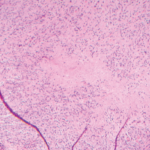Epigenetics may offer clues about loss of tolerance in CVID. In one study, DNA methylation patterns in monozygotic twins were discordant for CVID.
“We do know that as those B cells start to mature, the methylation on those B cells remains hyper compared with normal individuals. There is some inherent defect in methylation status of patients with a common variable,” said Dr. Gershwin.
First-line treatment for CVID is lifelong immunoglobulin replacement, either subcutaneous or intravenous. The most common complications are immune thrombocytopenia and autoimmune hemolytic anemia. Treatments for CVID patients with autoimmunity include an array of immunosuppressants, including biologics.
IPEX
Another primary immune deficiency that may overlap with autoimmune disease is IPEX, which stands for immune deficiency, polyendocrinopathy, enteropathy, X-linked inheritance.4 IPEX, as in a number of other primary immunodeficiencies, is caused by defects on the X chromosome.
IPEX is caused by a defective FOXP3 transcription factor gene, which leads to a reduction in T regulatory cells, which then leads to immune dysregulation and loss of tolerance. Children with IPEX will die if they don’t have bone marrow transplants, said Dr. Gershwin.
T regulatory cells express FOXP3, which is critical in the transfer of immune tolerance, especially self-tolerance. Also, a related primary immune-deficiency, IPEX-like disease is found in females who have defective T regulatory cells caused by mutations in the IL2r (CD25) or signal transducer and activator of transcription (STAT) genes.
The effect of individual IPEX mutations on FOXP3 expression and function is variable, said Dr. Gershwin. “Any mutation of the functional area of the molecule has implications downstream. And this is best illustrated by IPEX: 60 unique mutations have been recorded of the FOXP3 gene. The [effect] of these mutations on the individual is like a crapshoot. It’s not always predictable,” he said.
IPEX disease severity and symptoms may vary considerably between even two patients with the same gene mutation, which suggests severity may be modulated by other disease-modifying genes that affect T regulatory cell function, as well as variability in the T cell receptor repertoire, the major histocompatibility complex haplotype or epigenetic and environmental factors.
Patients with IPEX have enteropathy that usually presents as intractable diarrhea. Because of defects in their T regulatory cell function, these patients have no control of complex gut immune components.
“If you don’t have FOXP3, you won’t have normal thymic selection,” said Dr. Gershwin. “Thymic selection, the forbidden clone, is the key to understanding how loss of tolerance takes place at least in some cases.”

